There is no denying the rise of specialty coffee culture worldwide. What about China, though?
China’s consumer base and coffee production have recently increased at an unprecedented rate.
Premium beans, artisanal brewing methods, and other drinks that were long seen as foreign are now being embraced by Chinese coffee drinkers.
Cities around China are increasingly home to specialty coffee shops, and many brands have established themselves in the third-wave Chinese coffee market.
In this article, I’ll talk about the growth of China specialty coffee and how it’s influencing the local industry.
Along with discussing the potential future of Chinese coffee, we’ll also examine the elements contributing to its quick growth.
China’s Developing Coffee Culture
China has a more than 1,000-year history of tea culture, which demonstrates that it has always been a society that enjoys drinking tea.
However, in recent years, coffee has started to gain popularity.
In China, the specialty coffee trend first emerged in the late 1990s and early 2000s, spurred on by young, urban consumers looking for novel tastes and experiences.
Chain coffee brands like Starbucks and Costa Coffee began opening locations all across the country as coffee shops gained in popularity.
Presently, the specialty coffee market in China is growing, with new cafes and roasteries popping up in major cities.
There has been an increasing trend towards artisanal coffee, with consumers willing to pay a premium for high-quality, carefully sourced beans and unique brewing methods.
Moreover, there has been a rise in coffee appreciation and education, with events such as coffee festivals, tastings, and barista competitions becoming common.
This has helped to cultivate a coffee culture where people can come together to enjoy a cup of coffee and share their knowledge and passion for the beverage.
Despite the growth of coffee culture in China, tea remains an integral part of the country’s heritage and daily life, with over 2,500 years of history to its name.
This juxtaposition between coffee and tea gives China a unique perspective on coffee consumption, as it allows people to appreciate both drinks without either being seen as superior or inferior.
The Rise of Third-Wave Coffee Brands in China
Over the past few years, several Chinese-owned coffee brands have started to make their mark on the specialty coffee scene.
These companies are challenging traditional roasters and pushing the boundaries of what is possible regarding coffee production.
Luckin Coffee, one of the most well-known coffee brands in China, is an example of such a business.
Since its founding in 2017, Luckin Coffee has grown to have more than 4,000 locations nationally.
The brand appeals to consumers who are busy since it provides a variety of cutting-edge drinks and easy delivery alternatives.
Another example is Greybox, a roaster and coffee chain that uses single-origin beans to create unique and flavorful coffee blends.
Greybox also emphasizes sustainability and fair trade, using coffee beans sourced directly from farmers in countries such as Ethiopia, Colombia, and Peru.
Many independent coffee shops have also opened in major cities, such as Beijing and Shanghai.
These shops focus on bringing high-quality coffee to the masses, often using specialty beans and manual brewing methods to create a truly unique coffee experience.
These independent shops have become popular hangouts for coffee enthusiasts and have helped to foster a thriving coffee culture in China.
The Rise of Drip Coffee Bags
Another trend in China’s coffee industry is the popularity of drip coffee bags.
These bags are pre-packaged with ground coffee and are designed to make it easy to brew a single cup of coffee without a machine or any special equipment.
Think of them as the equivalent of a teabag – all you have to do is tear open the bag and pour hot water on it!
These bags have become hugely popular with Chinese coffee consumers looking for a convenient and hassle-free way to make their coffee.
The fact that they are also affordable and widely available has made them a favorite of many coffee drinkers.

As more brands enter the market and the increased availability of these bags, the Chinese specialty coffee industry is only getting stronger.
I spoke with Eugene, an entrepreneur and coffee enthusiast living in Beijing, about his thoughts on the industry’s growth.
“The convenience of drip coffee bags has made it easier for people to enjoy coffee without investing in expensive equipment,” he says.
“It’s great to see how the industry is growing and how people are starting to appreciate coffee more.”
Why Is Consumption Increasing?
The country’s growing middle class is the main driver of rising coffee consumption in China.
More people are preferring to drink specialty coffee as they have more disposable income and access to higher-quality coffee.
Furthermore, China’s younger generations are becoming more exposed to a globalized lifestyle and are more open to trying new and different things, such as specialty coffee.
This has contributed to the development of a thriving coffee culture in China, with individuals keen to learn more about various roasts and brewing methods.
When I polled a small group of Beijing residents on their opinions of China’s expanding specialty coffee industry, the results were overwhelmingly positive.
People expressed their excitement at the variety of choices and flavors, as well as how wonderful it was to finally have access to high-quality coffee.
One coffee loverfemale stated it best when she remarked: “I’m glad that specialty coffee is now available to us.
It’s great to be able to appreciate the nuances of different roasts and brewing methods – something that we couldn’t do before.”
China’s Relationship With Coffee
China has a relatively recent relationship with coffee.
The consumption of coffee in China has been on the rise in recent years as the country’s middle class grows and urbanizes, leading to a greater demand for Western-style coffee shops and a more varied range of drinks.
While traditional Chinese tea culture still holds strong, coffee has gained popularity, particularly among young people.
International coffee chains such as Starbucks, Costa Coffee, and McCafé have all opened numerous branches in cities across China, tapping into the growing market.
In addition to imported coffee, the Chinese coffee industry has also started to develop its own domestic coffee culture, with local coffee shops and roasters popping up in cities across the country.
The production of coffee in China is also increasing, with the country now growing coffee beans in the southern province of Yunnan.
Despite this growing interest in coffee, tea remains a staple of Chinese culture and is deeply rooted in the country’s history and way of life.
Nevertheless, the increasing popularity of coffee in China highlights the changing tastes and preferences of the country’s rapidly growing middle class.
The Future of China Specialty Coffee: An Emerging Coffee Market
The rise of specialty coffee in China has been swift and dramatic, but there is still a long way to go before the country can compete with larger coffee markets such as the United States and Europe.
The industry’s challenges include educating consumers about the different types of coffee, developing a culture of drinking specialty coffee, and creating the infrastructure to support the production and delivery of better-quality beans.
Despite these challenges, the future of specialty coffee in China is promising.
With more people drinking coffee and an increasing number of coffee shops and roasters popping up in cities across the country, the Chinese market is steadily becoming a major player in the global coffee industry.
It will be interesting to see how this trend continues over the next decade and its impact on Chinese culture and the international coffee market.
FAQs
What Are the Unique Characteristics of Chinese Specialty Coffees Beverages?
Chinese specialty coffee is distinguished by its distinct tastes and brewing methods, both of which are influenced by Chinese culture and traditions. Yunnan coffees stand out for their light body, moderate acidity, and sweet fragrances.
What Is Yunnan Coffee?
Yunnan coffee refers to coffee beans that are grown and produced in the Yunnan Province of China. This area is known for its diverse climate and rich soil, which creates ideal conditions for growing high-quality coffee. Yunnan coffee is known for its distinct flavor profile, which often includes chocolate, nuts, and fruit notes.
When Did China Start Producing Exportable Volumes of Specialty Coffee?
According to Yunnan Coffee Traders, the first exportable volumes of Chinese specialty coffee were produced in 2015. During this period, Yunnan Coffee Traders, Mangzhang Coffee Traders, and Pablo & Rusty’s Specialty Coffee Roasters collaborated to export a full container of Chinese specialty coffee.
What Popular Signature Type of Coffee Do Chinese Drink?
The traditional Chinese drink of choice is still tea, with green tea being the most popular. However, a survey in 2022 shows 61 percent of respondents said they drank cappuccino most often. In recent years, the Chinese have also developed a taste for specialty coffee, such as single-origin coffees and instant coffee.
What Is Chinese Coffee Called?
In China, coffee is simply referred to as “kafei” (咖啡), which is the pronunciation of the word “coffee” in Mandarin Chinese. No specific term distinguishes Chinese coffee from coffee grown and produced in other countries. However, the term “Yunnan coffee” (云南咖啡) is sometimes used to refer specifically to coffee grown and produced in the Yunnan Province of China.
What Is the Best Specialty Coffee in the World?
The best specialty coffee in the world is subjective and can vary depending on personal taste preferences. Colombia, Ethiopia, Jamaica, Kenya, and Yemen are some of the most renowned coffee-producing countries worldwide.
What Is the Popular Coffee Brand in China?
In China, some of the most popular coffee brands are domestic brands such as Luckin Coffee and Starbucks, as well as international brands like Nescafe and Costa Coffee.
Is China Famous for Coffee?
No, China is not famous for producing coffee. However, China is gaining popularity for its specialty coffee, particularly in Yunnan. This is because the climatic conditions and soil properties in this region result in high-quality coffee with unique flavors.

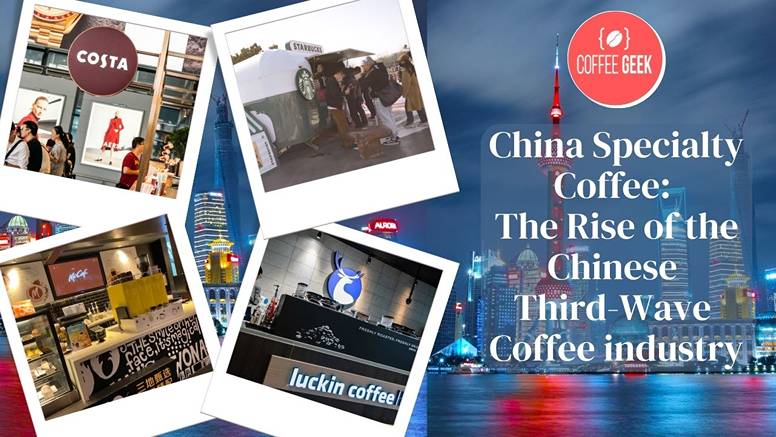
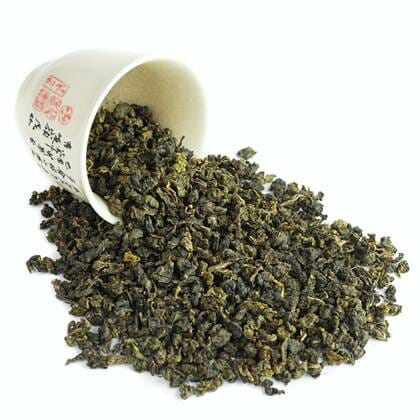
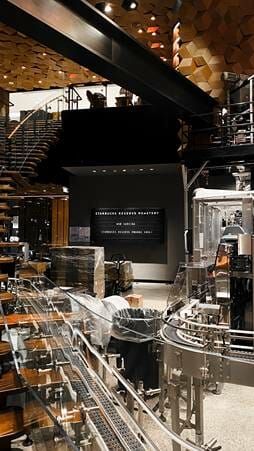
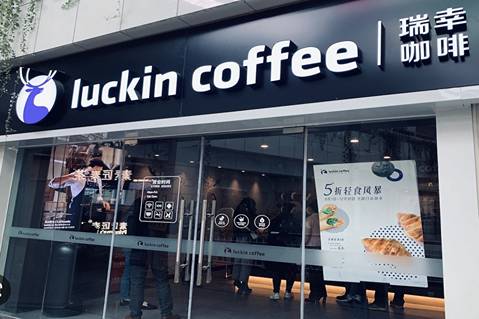
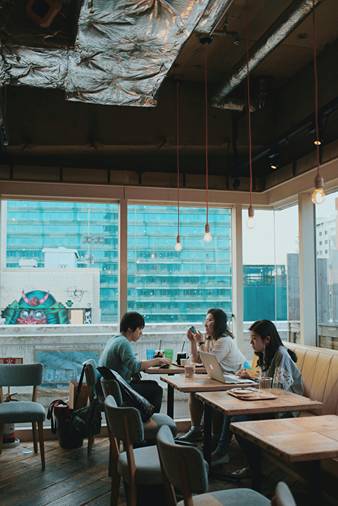
-unsplash-1.jpg)
